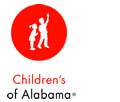Shunt Outcomes of Post-Hemorrhagic Hydrocephalus
| Status: | Completed |
|---|---|
| Conditions: | Women's Studies |
| Therapuetic Areas: | Reproductive |
| Healthy: | No |
| Age Range: | Any |
| Updated: | 12/27/2017 |
| Start Date: | January 10, 2011 |
| End Date: | May 10, 2016 |
Shunt Outcomes of Post-Hemorrhagic Hydrocephalus: A Network Pilot Study
This multicenter, prospective pilot study will compare the effectiveness of two established
procedures used in the treatment of post-hemorrhagic hydrocephalus in very low birth weight
infants, specifically ventricular reservoirs and subgaleal shunts. The study is being
conducted by the Hydrocephalus Clinical Research Network (HCRN), a network established to
conduct multi-institutional clinical trials on pediatric hydrocephalus.
procedures used in the treatment of post-hemorrhagic hydrocephalus in very low birth weight
infants, specifically ventricular reservoirs and subgaleal shunts. The study is being
conducted by the Hydrocephalus Clinical Research Network (HCRN), a network established to
conduct multi-institutional clinical trials on pediatric hydrocephalus.
Intraventricular hemorrhage and post-hemorrhagic hydrocephalus remain a leading cause of
mortality and long-term morbidity in premature infants. The two most common temporary
cerebrospinal fluid (CSF) diversion procedures are the ventriculosubgaleal shunt (SGS) and an
implanted ventricular reservoir (RES) for intermittent CSF removal. These methods are
physiologically very different and their comparative effectiveness in treating hydrocephalus
and possibly reducing the need for an eventual permanent CSF shunt is currently not known.
The goal of this pilot study is to obtain information critical for planning and executing a
future randomized trial comparing SGS and RES. Specifically, this pilot study will establish
inclusion criteria, define the primary outcome, and standardize the interventions in
preparation for initiating a comparative trial between the SGS and RES procedures. In
addition, the importance of examining the neurodevelopmental outcomes for these patients has
been recognized within the neurosurgical and neuropsychological settings. Therefore, the
scope of this study has been extended to include an examination of the neurodevelopmental
outcomes at 18 to 22 months and at 36 to 42 months in patients who undergo BSID-III testing
at their clinical centers.
mortality and long-term morbidity in premature infants. The two most common temporary
cerebrospinal fluid (CSF) diversion procedures are the ventriculosubgaleal shunt (SGS) and an
implanted ventricular reservoir (RES) for intermittent CSF removal. These methods are
physiologically very different and their comparative effectiveness in treating hydrocephalus
and possibly reducing the need for an eventual permanent CSF shunt is currently not known.
The goal of this pilot study is to obtain information critical for planning and executing a
future randomized trial comparing SGS and RES. Specifically, this pilot study will establish
inclusion criteria, define the primary outcome, and standardize the interventions in
preparation for initiating a comparative trial between the SGS and RES procedures. In
addition, the importance of examining the neurodevelopmental outcomes for these patients has
been recognized within the neurosurgical and neuropsychological settings. Therefore, the
scope of this study has been extended to include an examination of the neurodevelopmental
outcomes at 18 to 22 months and at 36 to 42 months in patients who undergo BSID-III testing
at their clinical centers.
Inclusion Criteria:
- premature neonates with birth weights less than 1500 grams
- Grade III or IV intraventricular hemorrhage
- Fronto-occipital horn ratio greater than or equal to 0.50
Exclusion Criteria:
- Less than 72 hour life expectancy from other medical problems
We found this trial at
7
sites
Click here to add this to my saved trials
Children's Hospital of Alabama Children
Click here to add this to my saved trials
4401 Penn Avenue
Pittsburgh, Pennsylvania 15224
Pittsburgh, Pennsylvania 15224
412-692-5325

Children's Hospital of Pittsburgh of UPMC UPMC is one of the leading nonprofit health systems...
Click here to add this to my saved trials
Texas Children's Hospital Texas Children's Hospital, located in Houston, Texas, is a not-for-profit organization whose...
Click here to add this to my saved trials
Click here to add this to my saved trials
Seattle Children's Hospital Seattle Children’s Hospital specializes in meeting the unique physical, emotional and developmental...
Click here to add this to my saved trials
Click here to add this to my saved trials


